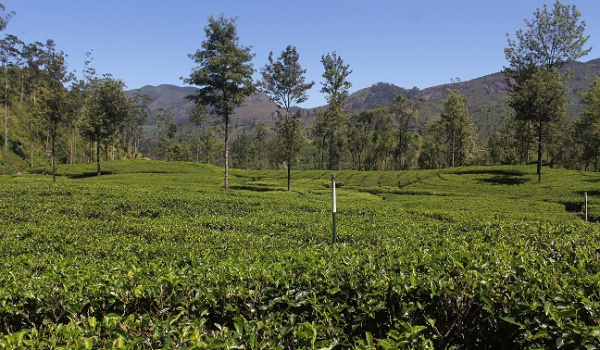The Government is now focusing attention on expanding agri crop cultivation in barren lands in areas other than tea and coconut plantation areas
Further it will explore the possibility of cultivating other agri crops in tea and coconut plantation lands and it is at experimental level.
This was disclosed by the Minister of Plantations Ramesh Pathirana when he addressed the ceremony organized in connection with the introduction of the pilot project in “Agroforestry on pilot on tea and coconut plantations in Sri Lanka”.
Tea and coconut play a critical role in the Sri Lankan social, economic, and political domains. As the fourth largest tea producer in the world, Sri Lanka annually produces over 300,000 metric tonnes of tea, which is around 17% of the total need of tea users.
Sri Lanka is placed fourth in the extent of coconut cultivating lands from the global agricultural land area. Many direct and indirect employment opportunities are generated in coconut and coconut-based industries.
Most of the tea plantations are situated in the Central, Sabaragamuwa and Southern provinces. The major portion of coconut holdings in Sri Lanka (nearly 75%) belong to smallholders while the rest belong to the estate sector where both private and government companies hold ownership.
Even though the contribution of the smallholder sector to the total annual coconut production is 70%, it is not yet organized well and as such is managed far below optimal levels
Although tea and coconut industries play a major role in the Sri Lankan economy, both tea and coconut plantations face several issues including land degradation, aging plantations, adverse impacts from climate change, lack of skilled labour, lack of capacity to adopt new international standards and international competitiveness from new arrivals.
Land degradation including fragmentation is a critical challenge that results in negative impacts on environment, economy, and human wellbeing. Therefore, improving degraded land in tea and coconut plantations is a timely action, which will give regional, national and global benefits.
The Government of Netherlands through its Netherlands Enterprise Agency (RVO) has designed an initiative to introduce two pilot projects in degraded lands, one for coconut and one for tea. RVO is engaging the Tea Research Institute and Coconut Research Institute along with Universities in the project.
IUCN Sri Lanka as the local anchor point for the RVO Netherlands will use IUCN flagship landscape management tools such as ROAM and INVEST, along with the local experience IUCN has gained during the last 30 years of working with different ecosystems.
IUCN will mobilize stakeholders and will also bring in partners together. Further, IUCN will facilitate testing viable business models in the plantation sector in Sri Lanka.
Overall, IUCN will play the role of bringing a new dimension to the use of agroforestry models in tea and coconut plantations in Sri Lanka in a more feasible and sustainable manner.
The project aims to facilitate a public-private partnership to pilot an agroforestry approach in degraded coconut and tea plantations, with the aim to enhance environmental as well as socio-economic sustainability of the production systems at the pilot plantations
.
For the long term, the project aims to develop guidelines on how to sustainably manage degraded lands in tea and coconut plantations, by applying an agroforestry approach.
The project will empower a mechanism, facilitated by a team of experts, to coordinate and create active partnerships with key actors (both direct and indirect) of the two sectors to review, upscale and institutionalize agroforestry practices in the tea and coconut plantations in Sri Lanka.
IUCN will engage in establishing and running a well-functioning local project management team, which will facilitate the dialogue between the key sectors involved in the project, with the aim of learning together and compiling lessons learned for upscaling of agroforestry practices in tea and coconut plantations in Sri Lanka.
